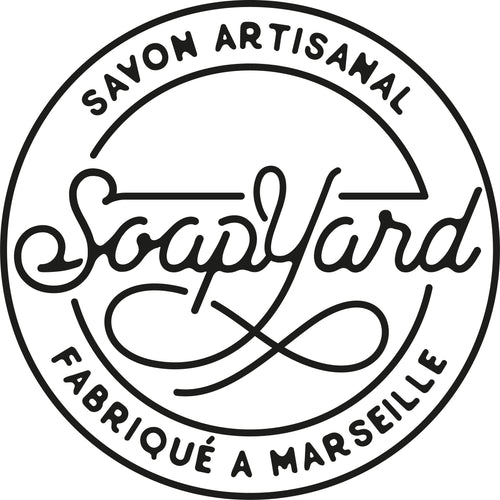Beef Tallow: Tradition, Ethics, and Alternatives in the Modern World
Beef tallow has re-emerged as a versatile and sustainable ingredient with applications in cooking, skincare, and traditional crafts. However, its rise has also reignited ethical debates, especially for those committed to plant-based lifestyles. This comprehensive guide delves into the historical roots of tallow, its modern resurgence, ethical considerations, and plant-based alternatives like those offered by Soapyard.
The Origins of Tallow in Soap-Making
The story of soap-making can be traced back to ancient Rome, where washerwomen noticed that fat from cooking fires mixed with ash (a source of lye) produced a cleaning substance. This accidental discovery laid the foundation for soap-making traditions that relied heavily on tallow for centuries.
While effective, these early tallow-based soaps were later complemented or replaced by vegetable oils, which provided a gentler alternative. Today, some strong soaps, such as those used in industrial or heavy-duty cleaning, still use tallow, but sustainable plant-based oils have become the gold standard for everyday use, especially for ethical and environmental reasons.
Soapyard embraces this evolution by crafting luxurious soaps with sustainable plant oils, ensuring they are cruelty-free and suitable for vegans and vegetarians.
Tallow and the Ethical Question
For many, tallow represents a sustainable way to use byproducts from the meat industry which might otherwise be wasted. However, it poses an ethical dilemma for those who avoid animal products for environmental, ethical, or health reasons.
The Plant-Based Alternative
Plant oils, such as olive oil, coconut oil, and shea butter, offer comparable benefits without the need for animal-derived ingredients. These alternatives align with vegan values and provide an effective, sustainable solution for soap-making. Soapyard is dedicated to using these plant-based oils, creating soaps that are as effective as they are ethical.
Evidence for and Against Tallow
Tallow is not without its controversies, and understanding both sides of the debate is essential.
Positive Evidence
- Nutritional Benefits: Studies suggest that the saturated fats in tallow, especially from grass-fed cattle, are neutral or beneficial in the context of a whole-food diet.
- Anti-Inflammatory Properties: Grass-fed tallow contains conjugated linoleic acid (CLA) and omega-3 fatty acids, which have been linked to reduced inflammation and potential heart health benefits.
- Sustainability: When sourced ethically, tallow can be part of a zero-waste approach to livestock farming, utilising byproducts that might otherwise go to waste.
Negative Evidence
- Health Concerns: Excessive saturated fat intake, especially in combination with a diet high in refined carbohydrates, has been associated with elevated cholesterol levels. While tallow alone may not be harmful, it’s important to consume it within a balanced diet.
- Pore-Clogging Potential: Dermatologist Dr. Maya Thosani notes that tallow may be comedogenic, meaning it could clog pores and cause acne, despite claims to the contrary.
- Environmental Impact: Industrial meat production, from which most tallow is derived, is associated with greenhouse gas emissions, deforestation, and water overuse.
For a balanced view, consult reputable sources like the Harvard T.H. Chan School of Public Health and PubMed Research.
Tallow in Skincare: Benefits and Considerations
Tallow’s similarity to human skin oils (sebum) makes it an effective moisturiser. It’s rich in fatty acids that fortify the skin barrier, trap moisture, and soothe dryness. These properties make it a go-to ingredient for those with eczema or psoriasis.
However, it’s not universally suitable. Some individuals may experience clogged pores or acne, particularly if their skin is sensitive to comedogenic ingredients.
The Culinary and Cultural Resurgence of Tallow
Tallow’s culinary uses are also being rediscovered. It has a high smoke point, making it ideal for frying and roasting, and imparts a rich, savoury flavour. Historically, McDonald’s cooked its iconic fries in beef tallow until the 1990s, when health concerns prompted a switch to seed oils.
Robert F. Kennedy Jr. recently highlighted this shift, arguing that fries cooked in tallow are not only tastier but may be healthier than those fried in heavily processed seed oils. With seed oils linked to inflammation and oxidation, many chefs and home cooks are reconsidering traditional fats like tallow.
Tallow vs. Seed Oils: The Debate
Advantages of Tallow
- Stable at High Temperatures: Tallow’s high smoke point reduces the risk of harmful compounds forming during cooking.
- Minimal Processing: Unlike seed oils, which often require chemical solvents and high heat, tallow is naturally rendered.
Concerns About Seed Oils
- High in omega-6 fatty acids, which can contribute to inflammation.
- Often heavily processed and refined.
Tallow Alternatives: Ethical and Effective
For those seeking alternatives, plant oils offer a compelling option:
- Coconut Oil: Known for its antibacterial properties and stability at high temperatures.
- Shea Butter: A deeply hydrating ingredient in natural cosmetics.
- Olive Oil: A staple in both cooking and skincare, particularly extra virgin olive oil.
Soapyard’s Commitment to Plant-Based Excellence
While tallow played a pivotal role in the origins of soap-making, Soapyard embraces modern advancements to offer sustainable plant-based alternatives. Their soaps are:
- Made with carefully sourced oils like coconut, olive, and shea butter.
- Suitable for vegans and vegetarians.
- Cruelty-free and eco-friendly.
Discover the full range at Soapyard and experience the ethical evolution of soap-making.
A Timeless Ingredient, Reimagined
Tallow’s historical significance and modern resurgence make it a fascinating subject, whether you’re a foodie, a skincare enthusiast, or someone interested in sustainability. However, for those seeking plant-based and ethical options, there are abundant alternatives that honour tradition while embracing progress.
For more insights into sustainable and ethical soap-making, explore Soapyard’s collection and make a choice that’s good for you and the planet.

